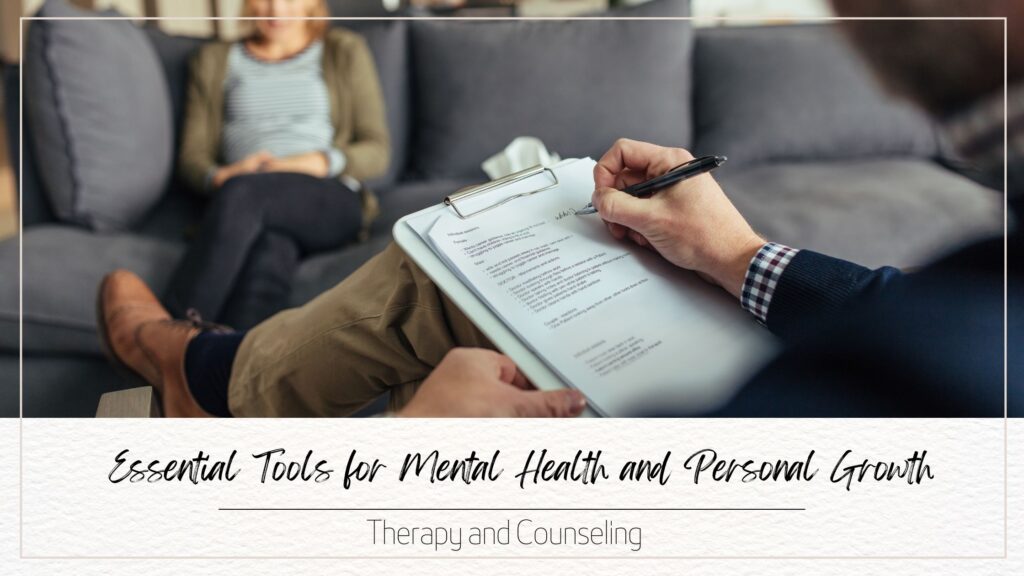

Psychotherapy and counseling are different types of therapy that help boost mental well-being. It is a more in-depth analysis and a long-term process that focuses on a person’s feelings and experiences. Whereas, counseling is more like short-term therapy talk.
Mental health consists of emotional, social, and psychological well-being. Additionally, mental health helps us think and determine how to handle stress and make healthy choices.
Moreover, in this blog, we will discuss the importance of therapy and counseling, the types of therapy services and psychotherapy.
Therapy is a form of treatment for a person suffering from a mental or physical illness without the use of drugs or operations.
Counseling is a form of therapy that involves talking. However, the process consists of an individual, couple, or family meeting with a professional counselor to consult about the issues.
Usually, therapy and counseling are considered the same but there are some key differences that people overlook. A therapist can take a therapy session whereas a counselor cannot take a therapy session. Therapy takes more time compared to counseling.
Moreover, a counselor or therapist acts as a guide and a confidant who helps you fight your deepest challenges and work toward a healthier and more fulfilling life.

Mental health is an integral component of our well-being that determines our abilities to make decisions and build relationships. It Helps shape the world you live in as It is essential to personal and community.
Additionally, some of the mental health support available are medication, psychotherapy, support groups, and self-help. alternative therapies, psychiatrist, peer support and talking therapy.
Additionally, getting mental health support results in improved communication, self-awareness and increased confidence and esteem.
There are several types of therapy services offered; some of them are:

Online counseling is a form of teletherapy or cyber counseling that provides mental health services through the Internet. Services are provided through email, conferencing and also text messages.
Some of the benefits of choosing an online counselor are accessibility, privacy, convenience, affordability and flexibility.
You should always look for a therapist who is good and matches you. Concerns like hypnotherapy, which is not effective online if you get easily distracted, make it recommended you consult a live session.
Privacy and confidentiality are the most crucial aspects of therapy, whether it is online or offline. Confidentiality creates trust which is the core of an effective relationship.
Psychotherapy is the use of various psychological methods which is based on a personal interaction with a person that reflects their behavior. Moreover, psychotherapy consists of various treatments that help identify a person and change their troubling thoughts, emotions and behaviors
Psychotherapy helps address the negative attitudes, beliefs and behaviors that have formed as a result of coping mechanisms and optimistic patterns. Additionally, it helps people manage their symptoms and strength.

While considering a therapist, some of the factors you must consider are:
Some of the questions to ask to a therapist are:
Finding the right therapist is essential as it helps manage your mental health. The right therapist helps develop a deeper understanding of the patient and helps provide you with the required support that is required to make changes in your life.
In conclusion, therapy is essential as it helps reduce pain and improve sleep and communication skills. Therapy and counseling help reduce stress and increase protein levels. However, if you feel discomfort or face any situation of distress, you are advised to seek help. To learn more about therapy and counseling visit Vitalqure.com. Additionally, if you wish to add any points or have any suggestions, do leave comments. If you like this blog do share and subscribe.
Therapy involves exploring an individual’s personal experience, whereas counseling focuses on the present.
If you experience repeated emotions that interfere with your daily life. You are advised to get a session for your own benefit.
Online counseling helps you know about people’s mental health. It is found that online counseling helps you become psychologically stronger.
The time duration varies from several months to several years. Moreover, the duration depends on what you need. It might end in two sessions or else it might take longer.
For patients undergoing anxiety disorders, CBT, where they face their fears, has been found effective in dealing with anxiety and depression.
CBT helps analyze and identify the specific problem that you are fighting against. If you are having problems opening up, a CBT helps analyze so a therapist can get a gist of the problems that need to be dealt with


Get the latest health tips, expert advice, and exclusive offers straight to your inbox when you sign up for the VitalQure™ email list

Stay informed about nutrition, fitness, and holistic wellness trends, and enjoy subscriber-only discounts on our premium health products.
Be the first to know about new product launches, special promotions, and events, and access exclusive content like e-books and webinars designed to empower you on your health journey.
Don’t miss out – join the VitalQure™ community now!